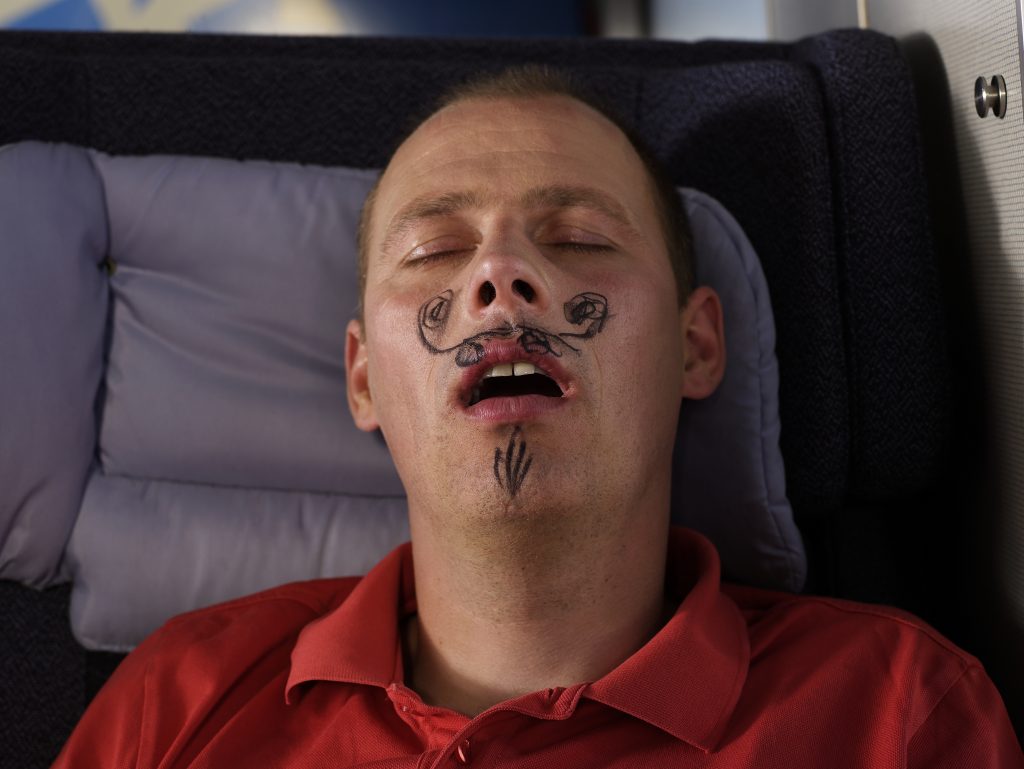Now that you are back from your Family Day long weekend, it is time to catch up with your sleep. But if you suffer from sleep apnea then you will never feel rested.
Normally, breathing is regular. Apnea means cessation of breathing. Sleep apnea is a condition that interrupts breathing during sleep.
Sleep apnea may be central – that is due to instability of the feedback system that regulates breathing. Or sleep apnea may be obstructive – due to recurrent obstruction of the upper airway. Or it can be mixed – central followed by obstructive.
Today, we will confine our discussion to obstructive sleep apnea.
A typical individual with obstructive sleep apnea starts snoring shortly after going to sleep. The snoring proceeds at a regular pace for a period of time, often becoming louder, but is then interrupted by a long silent period during which no breathing is taking place (apnea). The apnea is then interrupted by a loud snort and gasp and the snoring returns to its regular pace. This behaviour may recur repetitively and frequently throughout the night.
Obstructive sleep apnea causes frequent night awakening, feeling of tiredness in the morning, abnormal daytime sleepiness, headaches, memory loss, poor judgement, personality changes and lethargy. It may also raise the blood pressure.
Who suffers from obstructive sleep apnea?
Obstructive sleep apnea affects two percent of women and four percent of men. It is a condition of middle-aged adults.
Contributing factors may include obesity, use of alcohol or sedatives before sleep, anatomically narrowed airways, and massively enlarged tonsils and adenoids. Genetic and environmental factors may also adversely affect airway size. The condition may run in some families.
Diagnosis of sleep apnea is made by sleep study.
Is sleep apnea hazardous to your health?
During periodic breathing, there is a change in the amount of carbon dioxide and oxygen in the blood and this results in irregular heart rhythm, change in the blood pressure and in the autonomic nervous system. Heart failure, heart attack and stroke are likely complications.
Chronic sleep deprivation caused by sleep apnea increases risk for motor vehicle accidents. The accident rate for such patients has been reported to be seven times that of the general driving population.
In 1997, a review article in the British Medical Journal evaluated all studies published between 1966 and 1995 on the association between obstructive sleep apnoea and mortality and morbidity. The authors concluded that there was limited evidence of increased mortality or morbidity in patients with obstructive sleep apnea.
A report published recently in the American Journal of Respiratory and Critical Care Medicine found middle-aged and older men with untreated obstructive sleep apnea have more than double the risk of experiencing a stroke when compared with their counterparts who don’t have obstructive sleep apnea. Among women, an increased stroke risk was observed only among those with severe obstructive sleep apnea.
The paper concludes by saying that it is not known if treating obstructive sleep apnea reduces stroke risk but treatment offers a number of benefits, including greater alertness and less sleepiness in the day and improved concentration and memory.
Next week we will discuss treatment of sleep apnea. Until then sleep well.
Start reading the preview of my book A Doctor's Journey for free on Amazon. Available on Kindle for $2.99!
